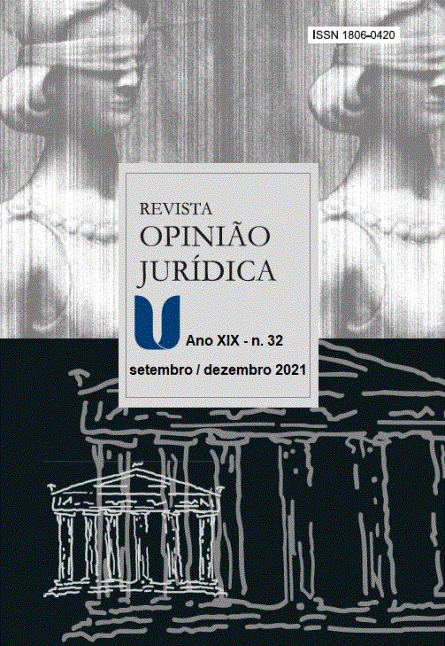DOES PATENT POLICY FOSTER INNOVATION? - THE CASE OF CHAGAS DISEASE
DOI:
https://doi.org/10.12662/2447-6641oj.v19i32.p58-84.2021Keywords:
Empirical Legal Research, Intellectual Property, Patents, Chagas diseaseAbstract
Objective: Chagas disease is a tropical disease caused by the parasite Trypanosoma cruzi, being considered neglected by the World Health Organization (WHO). Currently, it is estimated that 1.9 to 4.6 million people are infected with this parasite in Brazil. However, despite the alarming numbers, very few treatments are available for this disease. Considering that the aim of the intellectual property policy must be to stimulate innovation and technological development, the objective of this research is to verify whether the institutional system of patents may be contributing to foster research and development of medical products for Chagas disease.
Methodologies: This empirical research carries out a methodological approach, based on the rules of inferences, developed by Epstein and King (2013) and on the data coding, proposed by Charmaz (2014), utilizing the grounded theory.
Results: The main result is that the legal patent system, at national level, seems to distance itself from its original objective, concerning the development of products for the prevention and / or cure of Chagas disease by the private sector.
Contributions: The most relevant contribution is the participation of public institutions in the patenting process related to Chagas disease, which corroborates the notion that these organizations assume the role of economic policy instruments as scientific development is combined with social interest as far as the attempt to develop medical products for the population affected by the disease is concerned.
Published
How to Cite
Issue
Section
License
CESSION OF COPYRIGHTS
The submission of articles to analysis for publication on Opinião Jurídica implies the author(s) transfers copyrights to Centro Universitário Christus – UNICHRISTUS for reproduction, publicizing, distribution, printing and publication, according to the Publication Norm 414R, Opin. Jur., Fortaleza, year 12, n. 16, p.1-414, Jan./Dec. 2014, costs to be bore by UNICHRISTUS, in whatever format or means that may or shall exist, in accordance to articles 49 and following of Federal Law 9.610/98.
1. In ceding copyrights, the author(s) agrees to do so in exclusivity, free of charge and for the totality of the work.
2. UNICHRISTUS may make the work, in its entirety or in parts, available for scholarly purposes, without altering its contents, except for small corrections that are deemed necessary.
3. The cession of copyrights is valid in all countries and for versions of the material in its original language or translated into a foreign language.
RESPONSIBILITY FOR THE CONTENT
By submitting an article, the author(s) declare to have sole responsibility for the content of the piece and is(are), therefore, responsible for any judicial or extrajudicial measures referring to it.
1. In case of joint authorship, all authors are considered collectively responsible, except when proved otherwise.


















